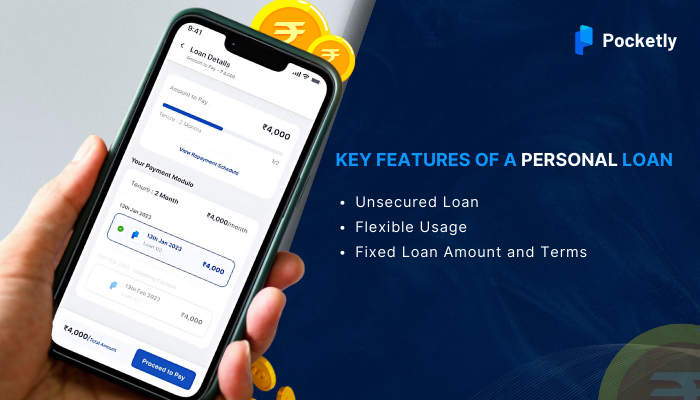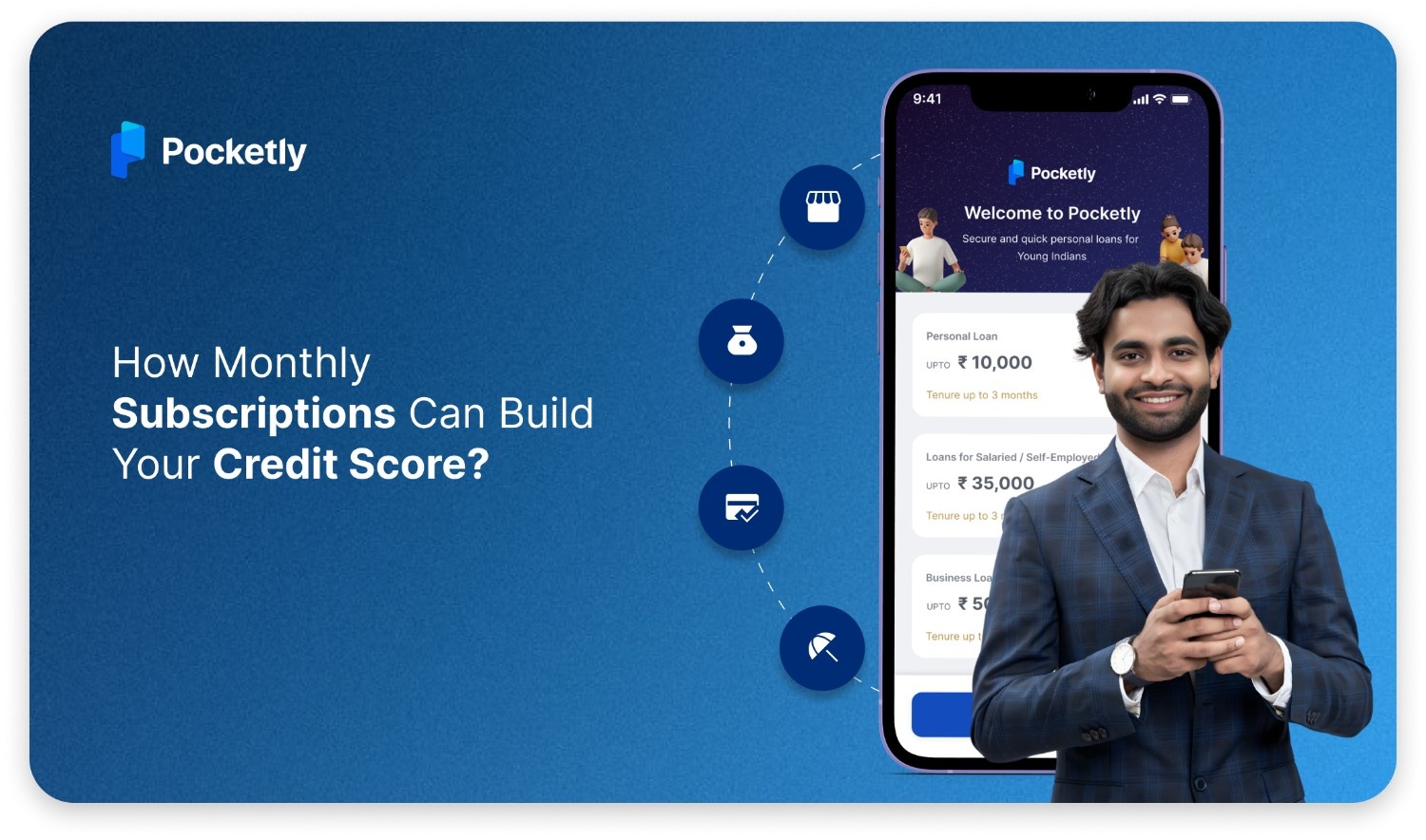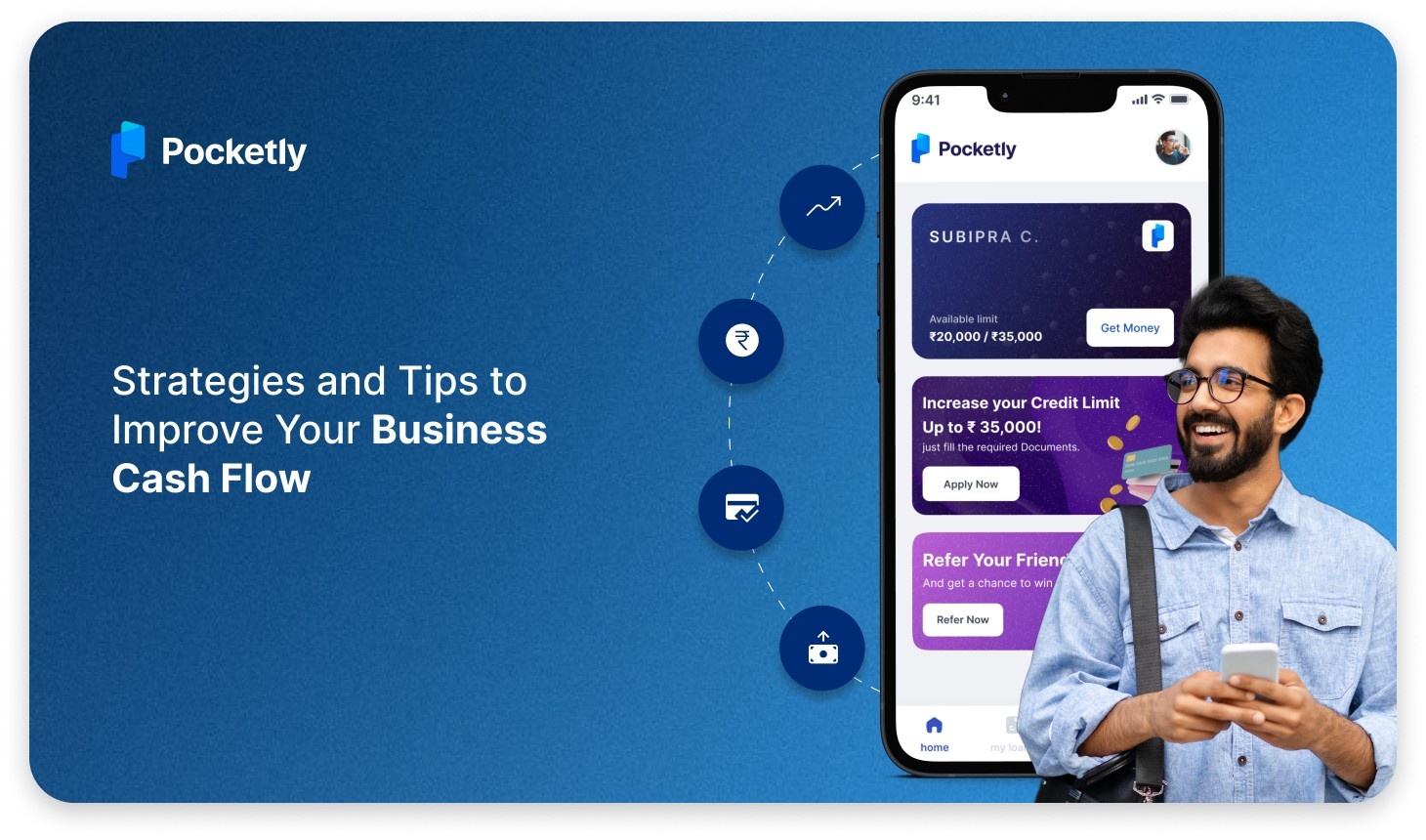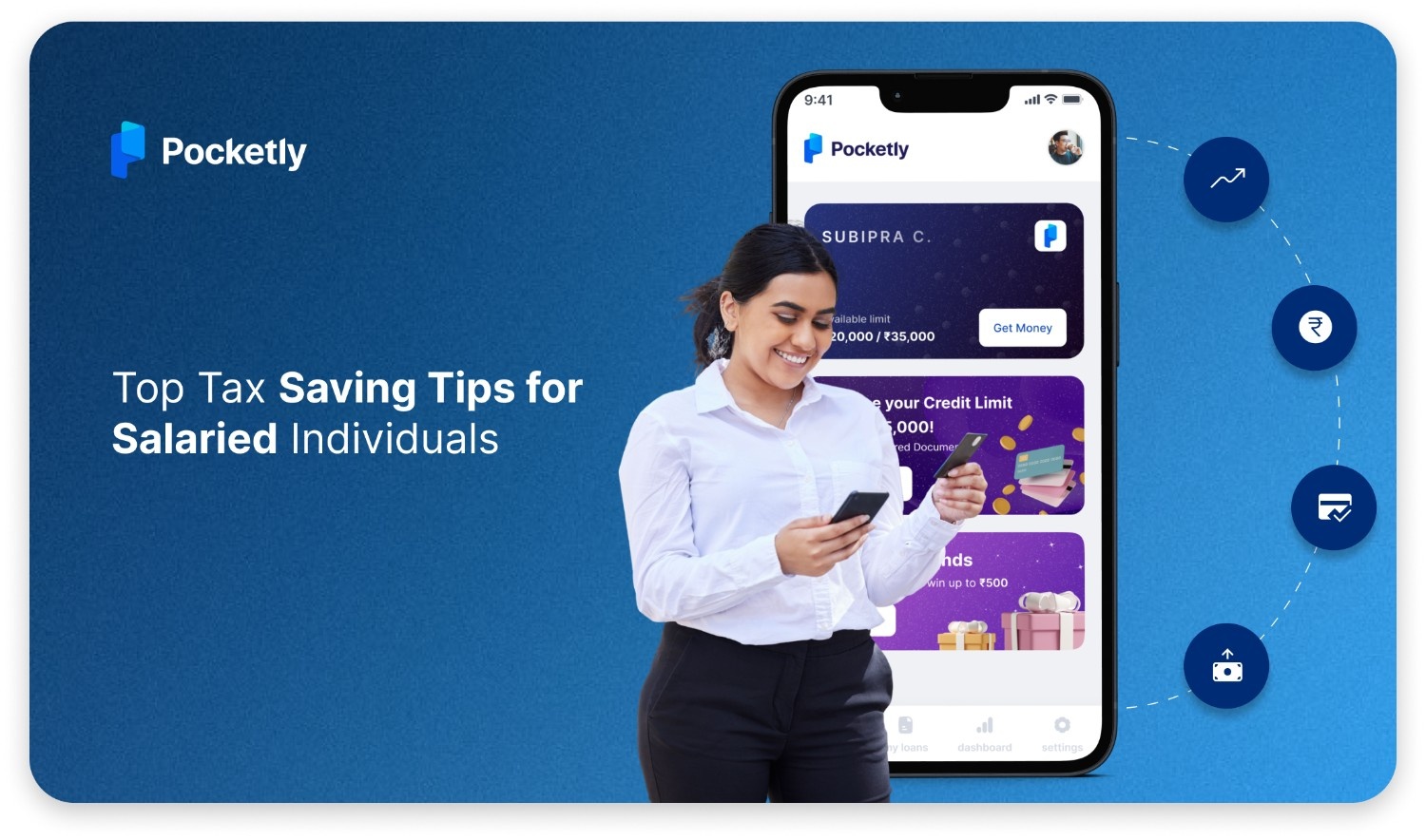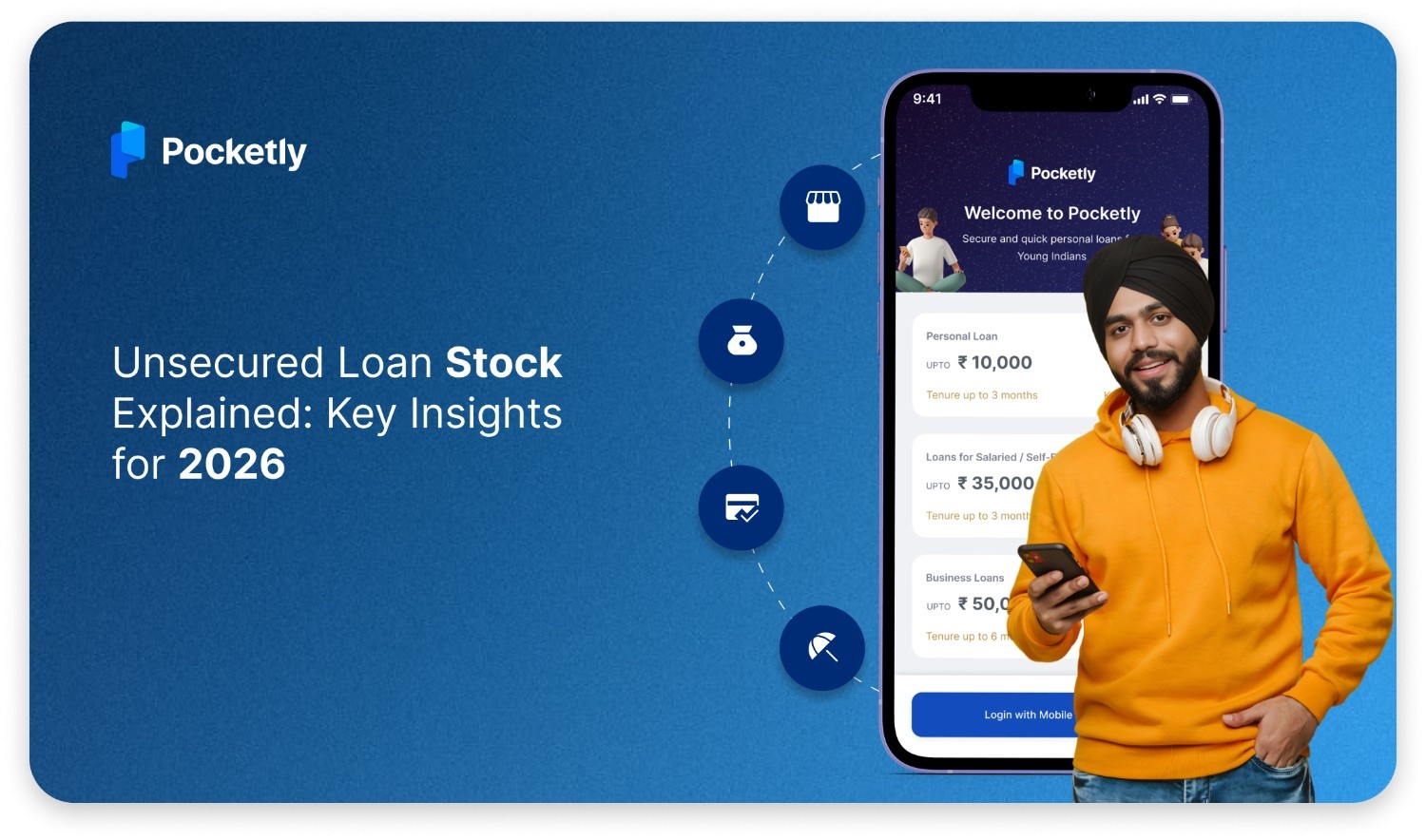When financing a major purchase like a car, the decision often comes down to choosing the right loan. Two common options are personal and car loans, but which one should you choose? While both can help you achieve your financial goals. A personal loan offers flexibility and can be used for almost anything.
In contrast, a car loan is specifically designed for purchasing a vehicle, typically with lower interest rates but stricter conditions. The right choice depends on various factors such as your credit score, financial situation, and the loan terms. Understanding the differences between a personal loan vs car loan is crucial to making the best decision for your needs.
In this blog, we'll break down the key differences between a personal loan and a car loan, helping you decide which one is better suited to your needs.
What Is a Personal Loan?
A personal loan is a versatile financial product that allows you to borrow a lump sum of money for various purposes. Unlike a car loan specifically for purchasing a vehicle, a personal loan can be used for almost anything, such as consolidating debt, funding home improvements, or covering emergency expenses.
Key Features of a Personal Loan
With its flexibility and unsecured nature, a personal loan is ideal for those who need financial assistance without the need for collateral. However, it’s important to compare it with other options, like a car loan, especially when you have a specific purpose like purchasing a vehicle. To better understand how a personal loan works, let’s look at the key features that make it a popular choice for many borrowers:
- Unsecured Loan: Personal loans do not require collateral, meaning there is no need to risk your property or assets. Lenders approve the loan based on your creditworthiness and income.
- Flexible Usage: You can use the loan for any purpose, giving you the freedom to manage finances as you see fit.
- Fixed Loan Amount and Terms: Personal loans usually come with a fixed loan amount, interest rate, and repayment term, making it easier to manage your finances and plan for the future.
Pros:
- Flexibility: You can use the loan for a wide range of expenses, not just a car purchase.
- No Collateral: As an unsecured loan, you don't have to risk assets.
- Fixed Terms: The predictable monthly payments make it easier to budget.
Cons:
- Higher Interest Rates: Personal loans typically come with higher interest rates than secured loans, like car loans, due to the lack of collateral.
- Requires Good Credit: To secure a personal loan at a favourable rate, you generally need a good credit score.
Also Read: Importance and Advantages of Credit Ratings
Whether you need quick funds for a personal emergency or want to consolidate debt, a personal loan can offer significant flexibility. However, keep in mind that the interest rates may be higher than those of other loan options due to the unsecured nature of the loan.
Now that we've explored the personal loan, let's take a closer look at what a car loan is, how it works.
What Is a Car Loan?
A car loan is a specific type designed for purchasing a vehicle. Unlike a personal loan, which can be used for various purposes, a car loan is secured by the vehicle itself, meaning the car acts as collateral for the loan. If you fail to repay the loan, the lender can repossess the car.
Key Features of a Car Loan
Let's take a closer look at some of the main features that make car loans distinct, including the secured nature of the loan and the benefits it offers for borrowers:
- Secured Loan: A car loan requires the vehicle to be used as collateral, which means the lender has a legal claim to the car if you default on the loan.
- Lower Interest Rates: Since the loan is secured, lenders usually offer lower interest rates compared to unsecured loans like personal loans.
- Loan Amount Based on Car Value: The loan amount is typically based on the price of the vehicle you’re purchasing, which means it directly correlates to the value of the car.
- Fixed Repayment Terms: Car loans often come with fixed repayment terms, making it easier to budget with predictable monthly payments.
Pros:
- Lower Interest Rates: The car acts as collateral, which generally results in lower interest rates.
- Easier Approval for Borrowers: Lenders are more likely to approve car loans because the vehicle serves as security for the loan.
- Flexible Loan Amounts: You can borrow an amount up to the value of the car, which may cover most of the car’s purchase price.
Cons:
- Risk of Repossession: Since the loan is secured against the car, failing to repay the loan could result in the loss of the vehicle.
- Restricted Use: Unlike personal loans, car loans can only be used to purchase a vehicle and are not flexible in terms of usage.
Also Read: Exploring Different Types of Loan Repayment Methods
Now let’s compare them side by side to help you understand the key differences that could influence your decision-making process.
Key Differences Between Personal Loan and Car Loan
Let’s take a closer look at the key differences between a personal loan and a car loan. Understanding these distinctions will help you make an informed choice based on your needs and financial situation.
1. Loan Type
- Personal Loan: A personal loan is typically an unsecured loan, meaning it doesn't require any collateral. Lenders approve this type of loan based on your creditworthiness, income, and financial history.
- Car Loan: In contrast, a car loan is a secured loan, meaning it requires the vehicle you purchase to act as collateral. If you fail to repay the loan, the lender has the right to repossess the car.
2. Interest Rates
- Personal Loan: Since personal loans are unsecured, they generally come with higher interest rates. The lender faces more risk because there’s no collateral to back the loan, and as a result, they compensate for that risk with higher rates.
- Car Loan: Car loans typically come with lower interest rates because the vehicle acts as collateral. The lender’s risk is lower, which translates to a better deal for the borrower.
3. Loan Amount
- Personal Loan: The amount you can borrow with a personal loan is typically based on your creditworthiness and financial profile. This means the loan amount is flexible and can vary depending on the lender and your ability to repay.
- Car Loan: A car loan is usually based on the price of the vehicle. This means the loan amount is generally limited to the car’s value and purchase price. However, in some cases, lenders may offer a higher loan amount if the borrower can provide additional security or have a strong financial profile.
4. Repayment Terms
- Personal Loan: Personal loans tend to have more flexible repayment terms, ranging from 1 to 5 years. The flexibility in repayment terms allows the borrower to manage payments according to their financial situation.
- Car Loan: Car loans usually have fixed repayment terms, typically 3 to 7 years, and the monthly payments are generally predictable. However, since the loan is secured, these loans may have longer repayment terms than personal loans, depending on the car's price.
5. Approval Process
- Personal Loan: The approval process for a personal loan can be fast if you have a good credit score and a stable financial background. However, since it is unsecured, a lender might require a higher credit score to approve the loan.
- Car Loan: Car loans are usually easier to obtain compared to personal loans, especially if you have a steady income and can provide proof of the car's value and condition. The car's value plays a significant role in the loan approval process.
6. Usage
- Personal Loan: One of the main advantages of a personal loan is that it can be used for any purpose. Whether you need funds for debt consolidation, medical expenses, or home renovations, a personal loan gives you the flexibility to use the money for your personal needs.
- Car Loan: A car loan, on the other hand, is specifically designed for purchasing a vehicle. It cannot be used for any other expenses, and the funds are typically disbursed directly to the car dealership or seller.
7. Collateral Requirement
- Personal Loan: Personal loans do not require collateral. This means there’s no risk of losing your property or asset if you default on the loan. However, you will likely face higher interest rates for this benefit.
- Car Loan: A car loan requires the car to act as collateral. If you fail to repay the loan, the lender can repossess the vehicle and sell it to recover their funds.
Summary Table: Personal Loan vs Car Loan
| Criteria | Personal Loan | Car Loan |
|---|---|---|
| Loan Type | Unsecured, no collateral required. | Secured loan, with the car acting as collateral. |
| Interest Rates | Typically higher, as there’s no security for the lender. | Generally lower due to the security of the vehicle. |
| Loan Amount | Flexible, based on the borrower’s financial profile. | Generally limited to the car's value and purchase price. |
| Repayment Terms | Flexible, usually 1 to 5 years. | Fixed terms, typically 3 to 7 years. |
| Approval Process | Fast approval but may require a higher credit score. | Easier approval, but based on the car's value and condition. |
| Usage | Can be used for any purpose (e.g., debt consolidation, medical expenses). | Restricted to purchasing a car. |
| Collateral Requirement | No collateral required. | The car is used as collateral for the loan. |
If you're considering a loan for your personal or vehicle-related needs, Pocketly offers an easy, transparent, and flexible solution to meet your financial goals. With Pocketly's loan offerings, you can borrow funds for various purposes without the need for collateral and get quick, hassle-free approval.
Now that we've explored the key differences between a personal loan and a car loan, let's explore how to determine which loan option is best suited for your financial needs and goals.
Which Loan Is Right for You?
Choosing the right loan depends on your needs, financial situation, and repayment ability. Personal and car loans offer distinct advantages, and the decision comes down to the purpose of the loan, interest rates, and the terms that best suit your financial profile.
Factors to Consider
Before deciding between a personal loan and a car loan, it’s crucial to evaluate your individual needs and the specific loan characteristics that will best support your goals.
1. Purpose of the Loan
The first step in making an informed decision is understanding exactly what you need the loan for. Whether it’s for a car purchase or something else, your purpose will guide your choice.
- Personal Loan: Ideal if you need funds for something other than a car, such as debt consolidation, home renovations, or personal expenses.
- Car Loan: Perfect when you are specifically looking to purchase a vehicle. A car loan is designed for this purpose, providing you with funds to cover the cost of the car.
2. Interest Rates
The interest rate on your loan plays a crucial role in determining the overall cost. Lower rates can save you money in the long run, so understanding how each loan option stacks up is essential.
- Personal Loan: Generally, personal loans have higher interest rates since they are unsecured. This means you don’t have to provide collateral, but it comes with a higher cost.
- Car Loan: Since it’s secured by the vehicle, car loans tend to offer lower interest rates. This can be an advantage if you're primarily interested in a lower overall borrowing cost.
3. Loan Terms
Loan terms can significantly impact your monthly payments and repayment timeline. It’s essential to assess which loan offers more flexible and manageable terms for your financial situation.
- Personal Loan: Personal loans typically offer more flexible repayment terms, ranging from 1 to 5 years, depending on your lender and credit profile.
- Car Loan: Car loans come with more structured repayment periods, often between 3 to 7 years, with fixed monthly payments.
When to Choose a Personal Loan
Personal loans are ideal when you need flexibility and want a loan for purposes other than just purchasing a vehicle. Here are some key reasons to choose this option:
- Flexible Financing for Non-Vehicle Purchases: If you're not purchasing a car and need money for a variety of other reasons, a personal loan gives you more freedom. You can use the loan for almost any purpose, from consolidating debt to paying for medical bills or even funding a vacation.
Example: You might want a personal loan to consolidate credit card debt or cover unexpected medical expenses without being tied to a specific purpose, like purchasing a car.
- No Collateral Required: If you don’t want to risk your vehicle or any other valuable asset as collateral, a personal loan is the right option. Since these loans are unsecured, you don’t need to pledge property, cars, or any other items.
Example: You may need funds for home renovations but don’t want to risk your home or vehicle. A personal loan would give you the cash you need without putting your property at risk.
When to Choose a Car Loan
Car loans are tailored for vehicle purchases. Here’s why choosing a car loan could be more advantageous for your situation:
- Specifically, Purchasing a Car: If your goal is to buy a car, a car loan is your best bet. It’s tailored specifically for vehicle purchases and offers terms and interest rates that align with this purpose.
- Example: If you’re buying a new car or a used vehicle, a car loan is the ideal option. The loan amount will typically be based on the car's value, and the vehicle will be used as collateral for the loan.
- Lower Interest Rates: Since a car loan is secured by the vehicle, it usually offers lower interest rates compared to personal loans. If you can handle the collateral risk, this option can save you money in the long run.
Example: If you're purchasing a brand-new car and want to borrow a large sum with a low interest rate, a car loan can be much more cost-effective than an unsecured personal loan.
Ultimately, deciding between a personal loan and a car loan depends on your specific needs, financial situation, and goals. Choose wisely, and align your loan option with your long-term financial well-being.
As we’ve seen, the decision between a personal loan and a car loan often depends on factors like loan purpose, interest rates, and collateral. But one critical element that plays a role in both options is your credit score. Let’s explore how your credit score impacts your ability to secure both types of loans.
Role of Credit Score in Securing Both Personal and Car Loans
Your credit score is one of the most important factors lenders consider when deciding whether to approve your loan application, whether it’s for a personal loan or a car loan. A good credit score can open doors to better loan terms, while a poor score may limit your options. Here’s how your credit score impacts both types of loans:
1. Personal Loan
- Impact of a Good Credit Score: If you have a high credit score, you’re likely to get approved quickly and benefit from lower interest rates. Lenders view you as a low-risk borrower, making you eligible for larger loan amounts with more flexible terms.
- Impact of a Poor Credit Score: With a low credit score, lenders may either reject your personal loan application or offer you a loan with higher interest rates. In some cases, you may also be required to provide additional documentation or a co-signer to improve your chances of approval.
2. Car Loan
- Impact of a Good Credit Score: A good credit score can make it much easier to get approved for a car loan, especially if you’re purchasing a new or expensive vehicle. You’ll likely be offered lower interest rates and may have access to more favorable repayment terms.
- Impact of a Poor Credit Score: If your credit score is poor, you may still qualify for a car loan, but the interest rates will likely be higher. In addition, the lender may require a larger down payment or offer a loan with less favorable terms.
How to Improve Your Credit Score for Better Loan Terms
If you're aiming for better loan approval and more competitive rates, it's important to take steps to improve your credit score. Here are some ways you can boost your score before applying for a loan:
- Pay Bills on Time: Ensure all your credit payments (credit cards, mortgages, utilities) are paid on time.
- Reduce Credit Card Balances: Lower your credit utilization ratio by paying down high balances.
- Check Your Credit Report: Regularly monitor your credit report for errors or discrepancies that could affect your score.
Having a strong credit score is essential when applying for most loans. However, if you’re concerned about not meeting the minimum credit score requirements, Pocketly has you covered. With Pocketly, you can secure a loan up to ₹25,000 without the need for a high credit score, offering a hassle-free application process. Now, let’s explore how you can easily apply for a Pocketly loan with this simple step-by-step guide.
How to Apply for a Pocketly Loan: A Step-by-Step Guide
Applying for a loan with Pocketly is quick and hassle-free. Just follow these simple steps:
- Step 1: Download and Register – Download the Pocketly app from the Google Play Store or the Apple App Store. Sign up with your mobile number to create an account.
- Step 2: Upload Required Documents – Submit basic KYC details like your Aadhaar card and PAN card. Make sure the documents are clear to avoid processing delays.
- Step 3: Complete KYC Verification – Verify your identity through Pocketly’s KYC process. Some users might be eligible for instant video KYC, speeding up approval.
- Step 4: Provide Your Bank Details – Enter your bank account information to ensure smooth and secure fund transfers. Once approved, the loan amount will be directly to your account.
- Step 5: Select Loan Amount & Repayment Tenure – Choose the loan amount and repayment period that works for you. Pocketly offers flexible options so you can repay comfortably.
- Step 6: Get Funds in Your Account – Once your loan is approved, the amount is deposited into your bank account almost instantly, giving you quick access to the money when you need it.
With minimal paperwork and a fast process, Pocketly makes borrowing simple, quick, and stress-free for self-employed professionals, students, and freelancers.
Conclusion
Choosing between a personal loan and a car loan isn’t just about the numbers; it’s about what best suits your current needs and future goals. While personal loans offer you freedom and flexibility, car loans bring in benefits for car buyers, with lower rates and specific terms. The key is in understanding how each option fits into your life, not just today, but in the long term.
Pocketly offers an ideal way to streamline this decision-making process. With straightforward terms, fast approval, and no collateral required, Pocketly is here to make your financial journey smoother. Whether you’re planning a purchase, consolidating debt, or managing an unexpected expense, Pocketly has a solution tailored for you.
So why wait? Download the Pocketly app now and discover how simple managing your finances can be.
FAQs
1. What’s the main difference between a personal loan and a car loan?
A personal loan is unsecured and can be used for any purpose, while a car loan is secured by the vehicle you are purchasing, typically offering lower interest rates.
2. Can I use a personal loan to buy a car?
Yes, a personal loan can be used to buy a car, but it may come with higher interest rates compared to a car loan, which is specifically designed for car purchases.
3. Is it better to get a car loan or a personal loan for a vehicle purchase?
If you want lower interest rates and can handle the collateral risk, a car loan may be the better option. However, if you need more flexibility and don’t want to use your car as collateral, a personal loan could be ideal.
4. How do interest rates compare between personal loans and car loans?
Car loans typically offer lower interest rates because they are secured against the vehicle, while personal loans have higher rates as they are unsecured.
5. What are the advantages of a personal loan over a car loan?
A personal loan offers more flexibility, as it can be used for anything, not just for purchasing a vehicle. It also doesn’t require collateral, reducing the risk to your assets.



